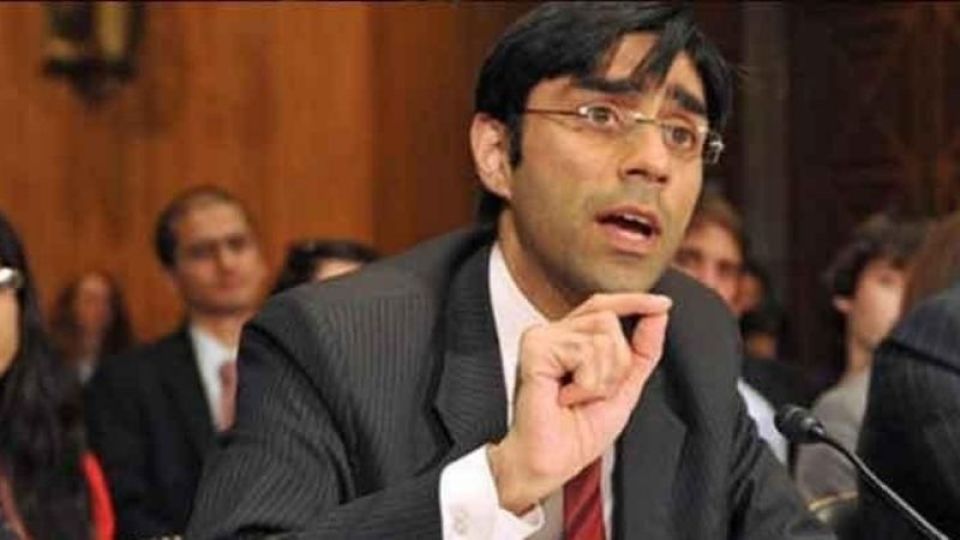March 16, 2022
ISLAMABAD – National Security Adviser Moeed Yusuf called on Tuesday India’s “indifferent and dismissive” approach to the firing of a missile inside Pakistan last week “worrisome”, after New Delhi said for the second time that the launch of the projectile across the border was “accidental”.
The incident had taken place on March 9, when the Air Defence Operations Centre of the Pakistan Air Force had picked up what was then identified as an “high-speed flying object” inside the territory.
“From its initial course, the object suddenly manoeuvred towards Pakistani territory and violated Pakistan’s air space, ultimately falling near Mian Channu at 6:50pm,” Inter-Services Public Relations (ISPR) Director General Maj Gen Babar Iftikhar had shared during a press briefing a day later and called for an explanation from India.
Subsequently, the Indian defence ministry had expressed regret over the incident, terming it “accidental” and attributing it to a “technical malfunction”.
Pakistan, however, demanded further explanation, calling India’s stance on the matter “simplistic”. The country also called for a joint probe into the incident.
Following these developments, Indian Defence Minister Rajnath Singh told his country’s parliament today that New Delhi was conducting a review of its standing operating procedures for operations, maintenance and inspection of weapons systems after the March 9 incident.
“We attach the highest priority to the safety and security of our weapon systems. If any shortcoming is found, it would be immediately rectified,” Rajnath Singh said, repeating India’s earlier stance that the missile was launched accidentally during routine maintenance and inspection.
NSA Yusuf pointed out today that the “claim” made by India for the second time was a “simplistic explanation without evidence” that “is insufficient and should be unacceptable to the world”.
In a series of tweets, he said, “We remind India and the world that this was a highly sophisticated supersonic missile which could have caused loss of life in Pakistan and resulted in escalation between two nuclear-armed countries.”
India has again claimed that the launch of its missile into Pakistan on 9th March was an accident during routine maintenance. This simplistic explanation without evidence is insufficient and should be unacceptable to the world.
— Moeed W. Yusuf (@YusufMoeed) March 15, 2022
“Once again, everyone must see for themselves which is the responsible state,” he added. “We all know that such incidents can easily escalate — history is full of such instances.”
The NSA said that Pakistan had once again acted responsibly during the episode to avoid any escalation, “exactly how we acted in 2019 when we shot down intruding Indian fighter planes after India tried to bomb us”.
“We even voluntarily returned their downed pilot to avoid escalation, Yusuf recalled.
The NSA further said the world should realise that “escalatory actions by India are a pattern, not an exception”.
“This is a classic character of an irresponsible and untrustworthy state when it comes to [the] handling of such sensitive weapon systems,” he added.
He highlighted that India’s “continued demonstration of lack of adequate safety and security protocols of their high-end weapons systems raises serious questions that remain unanswered” by Delhi.
“Their indifferent and dismissive approach after the incident is even more worrisome,” the NSA said, adding that “only a transparent joint probe can address the many unanswered questions about this so-called mistake”.
The NSA’s statement is the latest in a string of responses by Pakistan and the country’s politicians in the days following the March 9 incident.
Previously, the Foreign Office (FO) had issued a list of questions seeking explanations from India on multiple aspects of the incident, while the Indian envoy and charges d’affaires were summoned by the FO.
‘Incident could have resulted in a major disaster’
The issue was also discussed during the 248th Corps Commanders’ Conference at the general headquarters in Rawalpindi today.
Chief of Army Staff (COAS) General Qamar Javed Bajwa presided over the conference, the military’s media wing said, adding that the “forum reviewed with concern the recent incident of missile firing, claimed [to be] accidental by India, which could have resulted in a major disaster”.
#CCC was held @ GHQ. General Qamar Javed Bajwa, COAS presided. Forum was given comprehensive briefing on important global / regional developments, internal security situation in the country & progress on Western Border Management Regime. (1/5) pic.twitter.com/e2005ItjMf
— DG ISPR (@OfficialDGISPR) March 15, 2022
“It was emphasised that despite the Indian acknowledgement of the mistake, relevant international forums must take a serious view of the incident and subject the safety and security protocols of Indian strategic assets to deliberate oversight,” an statement issued by the ISPR said.
It added that “such dangerous incidents can act as [a] trigger and seriously endanger regional peace and strategic stability”.
According to the ISPR, the COAS issued directives on the occasion for ensuring comprehensive security measures for the “peaceful conduct of [the] OIC’s (Organisation of Islamic Cooperation) Council of Foreign Ministers meeting and Pakistan Day parade”.
‘We reject India’s response’
Earlier today, Qureshi also spoke about the missile issue during a press conference at the FO.
He mentioned his telephonic conversation with United Nations Secretary General Antonio Guterres on Monday, saying that he had expressed concern on the matter.
Qureshi said he had also written a letter to the UN secretary general and the president of the security council in this regard.
The foreign minister urged India to provide information regarding the specification, route, and trajectory of the missile.
He further questioned why India had remained silent on the matter until Pakistan demanded an answer, adding that the missile could have triggered a potential war between the two nuclear-armed countries.
Qureshi termed India’s investigation on the matter as “insufficient” and mentioned that China had also raised the issue and called for an investigation.
“We reject India’s response because of being insufficient,” Qureshi said.


